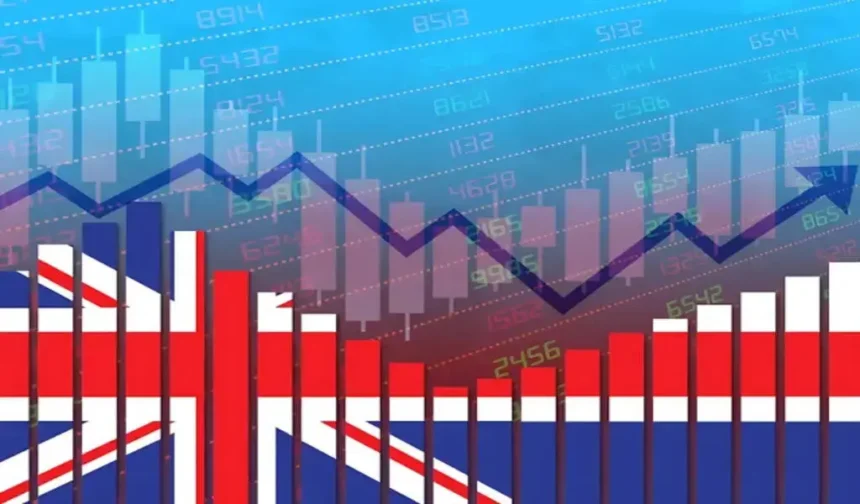(CTN News) – Inflation in the United Kingdom reached its highest level in almost a year in April, rising to 3.5%.
Significant increases in the price of petrol, electricity, water, and transportation, as well as increased employer pressure on national insurance and the minimum wage, were the causes of this.
The consumer price index (CPI) increased more than anticipated, according to the Office for National Statistics (ONS). As a result, the CPI surpassed both the Bank of England’s estimate of 3.4% and the City analysts’ forecast of 3.3%.
March’s inflation rate dropped to 2.6%.
The story’s original publisher, The Guardian, speculated that rising home costs were the cause of the energy price spike, calling it an “awful April,” after significant drops in energy prices the year before due to changes in the Ofgem price cap. The Guardian initially published the story.
At a rate of 26.1%, the cost of water and sewage has increased at the most notable pace since these services were privatised. Additionally, the excise tax on automobiles increased significantly.
The National Institute of Economic and Social Research’s Monica George Michail issued a warning, predicting a prolonged period of high inflation. As a result, the Bank of England will have to postpone the implementation of any further interest rate cuts.
She asserted that because of wage increases, increases in national insurance, and controlled price increases, these expenses will be passed on to consumers in the form of higher market pricing. She also promised to inform clients about these advantages. This year, we anticipate a single additional decline in interest rates.
According to the British Chambers of Commerce, rising expenses and invoicing are creating a “perfect storm” for firms. The cause of this unrest is the growing costs. According to the study, 55% of organisations want to increase their expenses in the coming months.
The financial markets altered their expectations by postponing the anticipated declines in interest rates from June and August to September. This was carried out to meet the new specifications. Interest rates are expected to drop from 4.25% to 4% by September.
Despite inflationary pressures, the overall increase was mitigated by a dip in the price of gas and a notable decline in the cost of clothing. This took place in spite of inflationary pressures.
According to ING analysts, the timing of Easter and higher vehicle taxes were the primary causes of the increase in service expenses, which resulted in a higher-than-expected CPI. Additionally, the Easter date had a big impact. This summer, inflation is expected to drop to about 4.5%, which will enable the Bank of England to reduce interest rates every three months until 2026.
Interest rates were recently reduced to 4.25 per percent by the Monetary Policy Committee of the Bank of England. However, the majority were divided, indicating uncertainty about the next actions.
Chancellor Rachel Reeves acknowledged the persistent challenges brought on by the growing expense of living. She pledged to help increase the effectiveness of household budgeting.
Shadow Chancellor Mel Stride criticised the administration by blaming Labour’s economic policies for the inflation spike and predicting that interest rates would remain high for a long time. Stride asserted that this type of government was responsible for the surge in inflation.
Regarding the political environment,
Inflation in the United Kingdom is on the rise, notwithstanding the ongoing disagreement within the Labour government over the proper tax and spending policies.
According to a letter made public, Chancellor Rachel Reeves was urged by the office of Deputy Prime Minister Angela Rayner to raise taxes by three to four billion pounds annually prior to this year’s spring statement.
However, Reeves ignored this suggestion and decided to implement welfare reforms that will cost five billion pounds. The ongoing internal debate exposes the divisions within the Labour Party.
These groups include those who favour higher taxes, including the potential increase in corporate tax and the restoration of pension benefits, as well as those who are apprehensive about further tax increases due to the growing cost of living for the general public.
Some members of the Labour Party are worried that these policies could lead to more people living in poverty and thus losing elections. As a result, Labour ministers are coming under fire for their decision to reduce the amount of money provided to retirees in the form of winter heating subsidies and welfare payments.
Budgetary negotiations hamper the Bank of England’s efforts to manage monetary policy in the face of rising prices and requests for interest rate cuts, making inflation statistics even more important and compounding the Bank’s existing difficulties.
SOURCE: TET
SEE ALSO:
Former President Joe Biden, 82, Diagnosed with Aggressive Prostate Cancer
The UK is the Fastest-Growing G7 Economy After a Strong First Quarter.
Beauty Influencer Valeria Marquez Killed During TikTok Livestream in Zapopan, Mexico















